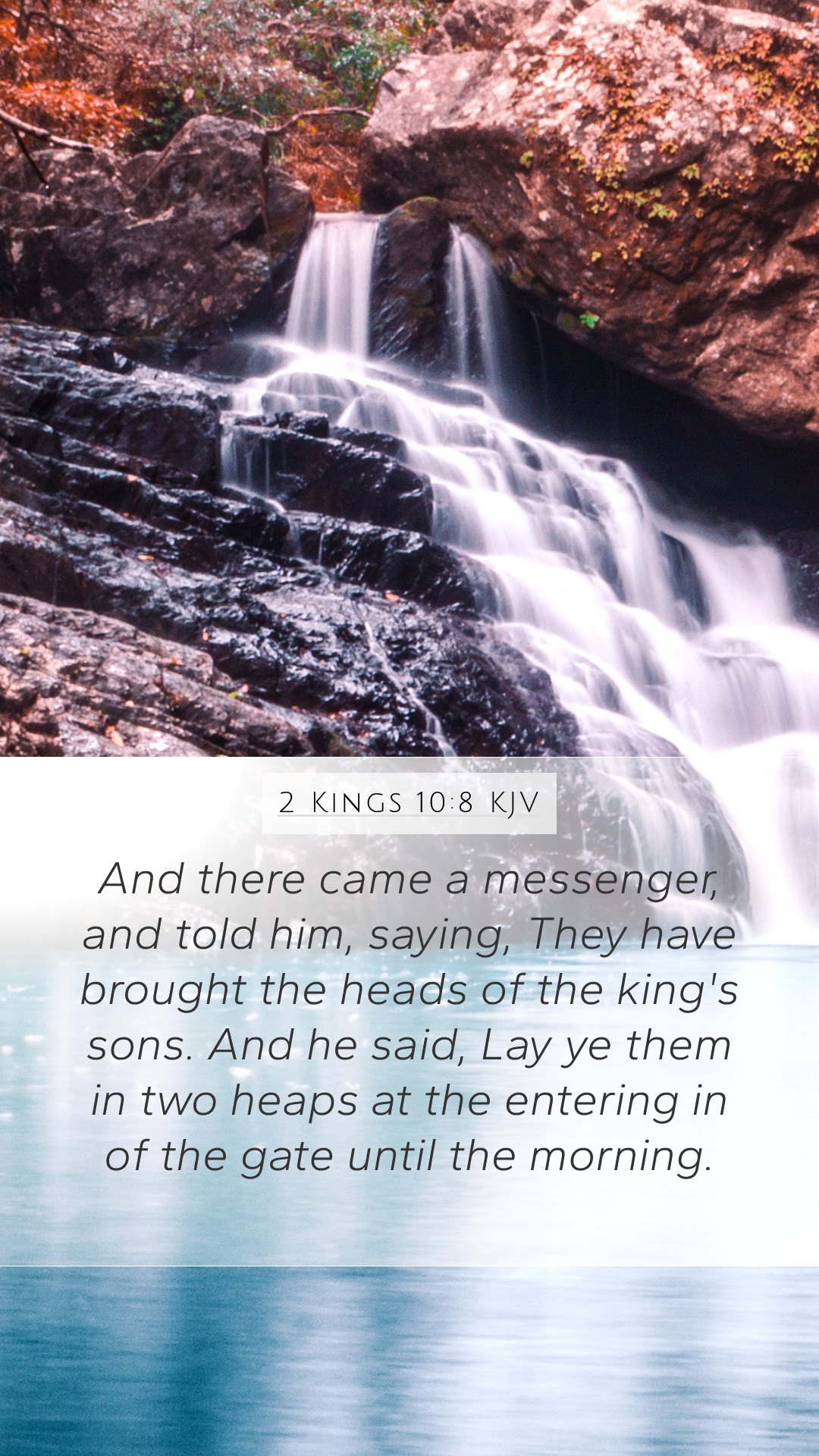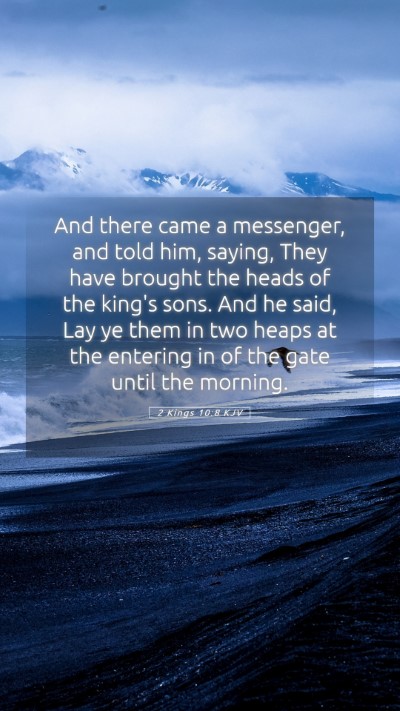Bible Verse Meaning and Commentary: 2 Kings 10:8
Verse: "And there came a messenger, and told him, saying, They have brought the heads of the king's sons: and he said, Lay ye them in two heaps at the entering in of the gate until the morning." (2 Kings 10:8)
Summary of 2 Kings 10:8
The passage of 2 Kings 10:8 serves as a stark illustration of the political intrigue and ruthless power play during the reign of Jehu in Israel. The verse captures a moment when messengers convey the gruesome news of the execution of King Ahab's sons, indicating the extent of Jehu's violent determination to cleanse the kingdom of any opposition.
Bible Verse Interpretations
Various public domain commentaries provide insight into the verse:
- Matthew Henry: Henry interprets this passage as reflecting the relentless pursuit of justice by Jehu, suggesting that such violence was seen as divinely sanctioned in his efforts to eradicate idolatry from Israel.
- Albert Barnes: Barnes emphasizes the brutality of the act and highlights the importance of this moment in fulfilling the prophecy against the house of Ahab. He suggests that such actions reveal the consequences of turning away from God's commands.
- Adam Clarke: Clarke notes the chilling nature of Jehu's orders and suggests that this execution was meant to instill fear and assert authority, portraying Jehu as both a leader executing divine judgment and a man reveling in cruelty.
Understanding Scripture: The Context of 2 Kings 10:8
This verse occurs within a larger narrative concerning Jehu’s rise to power and the judgment pronounced upon Ahab’s lineage for their idolatrous ways. The execution of Ahab’s sons represents a fulfillment of divine prophecy (1 Kings 21:21) that foretold the destruction of Ahab's descendants as a consequence of their bloodshed and idol worship.
Significance of Historical Context
The historical backdrop of the passage is crucial for understanding the motives behind Jehu's actions. His forceful take-over can be seen as a response to both political and spiritual crises in Israel, where leaders often veered away from the covenant established with God.
Bible Study Insights
- Authority and Judgment: Jehu's rise serves as a lesson in divine authority, illustrating how God can appoint leaders to execute His will.
- Consequences of Sin: This verse serves as a stark reminder of the consequences faced by those who oppose God's edicts, emphasizing the severe outcome of Ahab's defiance.
- Morality in Leadership: The brutal measures taken by Jehu prompt discussions on the moral responsibilities of leaders, particularly in wielding power and authority justly.
Application to Daily Life
While the actions of Jehu are extreme and not examples to replicate, they encourage reflection on our own responses to authority and how we confront moral dilemmas. This passage leads to questions about integrity, justice, and the consequences of our actions in positions of influence.
Cross References
- 1 Kings 19:16-17 - The anointing of Jehu and the judgment of the house of Ahab.
- 2 Kings 9:30-37 - Jehu's violent actions against Ahab's family.
- Hosea 1:4 - Prophecy concerning judgment on the house of Jehu.


